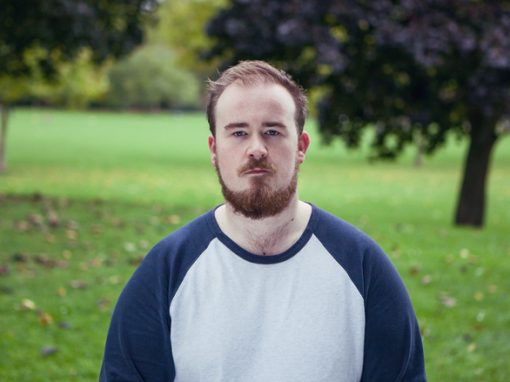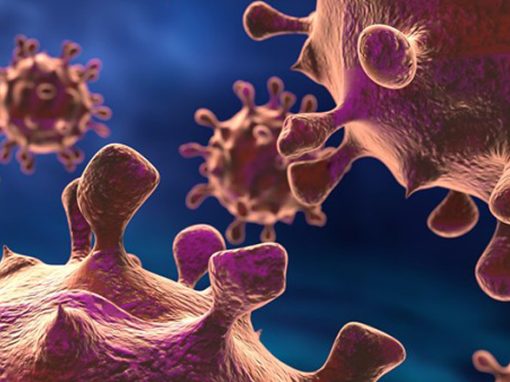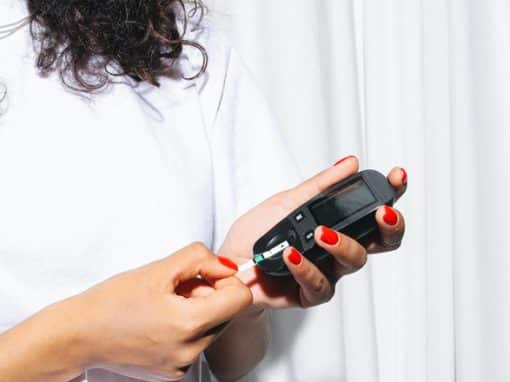It is with great sadness that we announce the death of MQ’s CEO Lea Milligan who passed away following a sudden illness on Monday the 15th of April. Lea dedicated his life to helping other people. He turned down a place at Oxford University, deciding instead to launch...
Depression
1 in 10
people are affected by depression in the UK
By 2030
depression is predicted to be the world’s biggest health problem
Only £1.55
is spent on research each year for every person affected in the UK
Related Conditions:
What is depression?
We all experience low mood sometimes - it is a normal part of life especially after a loss or bereavement.
However Clinical Depression goes beyond a normal response to a sad event. Clinical depression is a diagnosable condition which can leave people feeling severely sad, empty, hopeless or guilty for weeks, months or even years.
It can affect every part of a person’s life: Relationships, Work, Physical health. And, at its most severe, it can be life-threatening.
A clinically depressed person cannot just ‘snap out of it’ and may need some professional assistance, and even treatment, in order to recover.
What are the signs and symptoms?
Depression affects people in different ways and can have a wide variety of symptoms. It usually includes feelings of unhappiness or hopelessness, low self-esteem and finding no pleasure in things that previously brought joy.
People with depression may also experience anxiety. They might be more irritable and quicker to anger or have other uncontrollable emotions.
Depression can also have physical symptoms, such as fatigue, sleeping badly or much more than usual, poor appetite or overeating, and loss of sex drive.
Everyone experiences depression differently, and some people may feel shame about how they feel and try to hide or masque their feelings when in company.
What are the causes of depression?
There are many reasons why someone might have depression, there is no single or simple answer. Usually, it will be a combination of different reasons.
Some people are genetically predisposed to depression (I.E. if there is a family history of depression then a person may be more likely to have it themselves). However, it should be noted that there is no single gene responsible. It is more probable that a combination of genes each exert a small effect on a person which combine to affect overall mood.
A traumatic experience such as a violent incident, abuse or adverse childhood experience can also be a cause. (See also PTSD). Additionally, life events such as a sudden bereavement, loss of income or change in circumstances can trigger depression.
People who experience bullying and discrimination, such as racism or sexism, or who often feel lonely, or have low self-esteem are vulnerable to depression.
There are some physical causes of depression, for example it can be a side effect of certain medications or of substance misuse. Alcohol and drug use increases the risk of depression, especially when someone attempts to self-medicate, or ‘drown their sorrows’.
Long term serious illness, such as cancer or heart disease can be a cause, as can serious head injuries, underactive thyroid and even pregnancy.
Depression is often caused by a combination of different reasons and triggers.
What are common treatments of depression?
Treatment for depression usually involves a combination of lifestyle changes and therapies and sometimes medicines. Every individual is different and will require a tailored approach. In the first instance you should always consult a doctor or other healthcare professional.
Sometimes a doctor will ask you to monitor your symptoms without any treatment for a period of time. This is called ‘Watchful waiting’ and helps them to determine the best course of action.
Lifestyle changes
Changes to lifestyle such as reducing alcohol intake (Or other substances) getting more outdoor exercise and avoiding certain foods are all helpful.
Additionally, avoiding stressful situations, or learning coping techniques such as mindfulness can also help.
Therapies
CBT – Cognitive Behavioural Therapy
CBT is one of the most common forms of therapy. A talk therapy that takes place with a trained professional, CBT aims to help a person identify negative or false thoughts and replace them with positive or more realistic ones.
CBT is often used in conjunction with anti-depressant medications, as the combination of both treatments have shown the greatest success.
Talk therapy, or Psychodynamic therapy
Talk therapy usually takes place one on one with a trained therapist, although it can also sometimes take place in a group setting. It is designed to help patients explore the full range of their emotions and unravelling deep rooted feelings in order to analyse them.
IPT - Interpersonal Therapy
IPT is a short-term treatment, usually an hour a week for around 10-12 weeks, most often used in treating young people. It involves working with a trained specialist to address an individual’s relationships, including family and peers, to improve social adjustment. The long-term goal is to give the person the tool kit to function better in social situations and within their relationships.
Brain stimulation therapy
In some case, when a person with major depressive disorder has not responded to standard treatments brain stimulation techniques such as Electroconvulsive therapy (ECT) can be used. This is a neurosurgical procedure involving the placement of a medical device which sends electrical impulses, via electrodes, in order to either activate or inhibit parts of the brain directly. This is usually performed under anaesthesia.
Medication
Anti-depressants
It is important to note that Anti-depressants are not cures. They instead are used to ‘manage’ the symptoms of depression. Most doctors will prescribe anti-depressants along with another form of therapy such as CBT.
Anti-depressants usually come in tablet form and a course of treatment will last around 6 months. It can take up to 2 weeks before they take effect on a person’s mood.
There are different types of anti-depressants and different people may find they respond better to some types over others.
In very simple terms, anti-depressants work by balancing chemicals in the brain called neurotransmitters that affect mood and emotions. They do not make you happy, but instead relieve the symptoms of extreme emotions such as unhappiness and anxiety.
Mood stabilisers
Mood stabilisers are slightly different to anti-depressants and are more commonly used to treat conditions such as bi-polar disorder.
It is very important that any medication is only ever taken as prescribed by a medical professional. You should never start or stop a treatment without first consulting a doctor about how to do so safely.
What help and resources are available for people who need support or further advice?
If you are unsure whether you are temporarily unhappy or if you are experiencing depression then the NHS has an online self-assessment which you can use.
If you are feeling depressed then the first thing to do is speak to your GP. The sooner you seek professional assistance the more likely it is to be effective.
You can find out more about the resources available on our Get Help page.
What are the recent developments in research for Depression?
MQ funds a number of different studies that cover depression and related disorders. Here are some of the recent findings:
The IDEA project has successfully developed a tool to identify which young people are at risk of developing depression in later life. This means that vulnerable people can be given access to help more quickly. Find out more.
Dr Colette Hirsh from Kings College London has developed a new treatment called Cognitive Bias Modification for Interpretation (CBT-I) which reduces the effects of repetitive negative thinking. Find out more.
Dr Jean-Baptiste Pingault from University College London used his research into the mental health impacts of bullying to develop new guidance for UK schools. Find out more.
What are the research priorities for Depression?
There’s so much we don’t know about what causes depression, how we can prevent it and which treatments work best. Research is essential to answering these questions.
To focus our work, we asked 3,000 people with depression what research answers would make the biggest difference to their lives. Their answers highlighted preventing the occurrence and recurrence of depression as the highest priority.
Want to see more of our mental health research? See how our world-class researchers are working tirelessly to better understand, diagnose and treat mental illness.
Help tackle depression
Join thousands of others in transforming mental health
Our research into depression

Sensitive periods for the effects of depression on suicide risk: a longitudinal study of gene-environment interactions and epigenetic mechanisms
Dr Lussier aims to determine the extent to which child and adolescent depression interacts with genetic susceptibility to influence suicide risk in early adulthood. More about this project

Understanding infectious disease mortality in people with severe mental illness
People with severe mental illnesses are more likely to die from infectious disease than the general population, however little is known about why. More about this project

Adapting and testing an integrated care model for treatment of Type 1 diabetes and mental health co-morbidities
People with Type 1 diabetes are at a higher risk of developing depression, anxiety, and early mortality. Can an existing care model be adapted to help? More about this project
Related Posts
How Stress Can Affect Mental Health
This Stress Awareness month, we’re considering how stress affects people differently and what to look for if you’re stressed. Although stress is not a mental illness, it can be the cause of, and the symptom of one. Some people are more responsive to stressful...
Stress The Point: Stress vs Mental Illness
April is Stress Awareness Month so to be aware of stress, honour it and deal with it appropriately, it’s important to be clear in the distinction that stress is not a mental health condition although it can be the cause of and the symptom of one. We perhaps in society...
Read next
View our research projects
Read more about different mental health conditions
Our research projects
Explore how our world-class researchers are working tirelessly to tackle mental illness.
View our research projects
Mental health conditions
Learn more about different mental health conditions, and the research we're doing to transform the lives of those affected by them.
Read more about different mental health conditions
Take part in research
How you can get involved in mental health research.


